On 20 April, all Christians will celebrate the Resurrection of Christ. Against the backdrop of our divided and troubled world, Catholics, together with Orthodox Christians, Armenians and Protestants, will send a message of hope and share the joy of the victory over mortality and death.
"I hope that Catholics, not only in Bulgaria but all over the world, are preparing for the Resurrection of Christ," says Father Paolo Cortesi, a parish priest in Belene. "We are invited to experience prayer more intensely, to abstain from meat and some other things, to be more zealous in our works of mercy, to help others and, through the sacrament of reconciliation, forgiveness and confession, to distance ourselves from sins and wrong ways and move towards goodness. And on the evening of Holy Saturday into Sunday, we will celebrate the Easter Vigil together, blessing the new fire, lighting the Paschal candle, listening to the Word of God and finally proclaiming the good news: "Christ is Risen!" And we will rejoice together."
"We will have two solemn Easter liturgies here. I hope that this year there will be more people because of the holidays and this wonderful grace that all Christians - Catholics, Orthodox, Armenians, Protestants - celebrate the Resurrection together. May it continue in the future, so that we can give a good sign that we are united in our faith in the Resurrection of Christ."
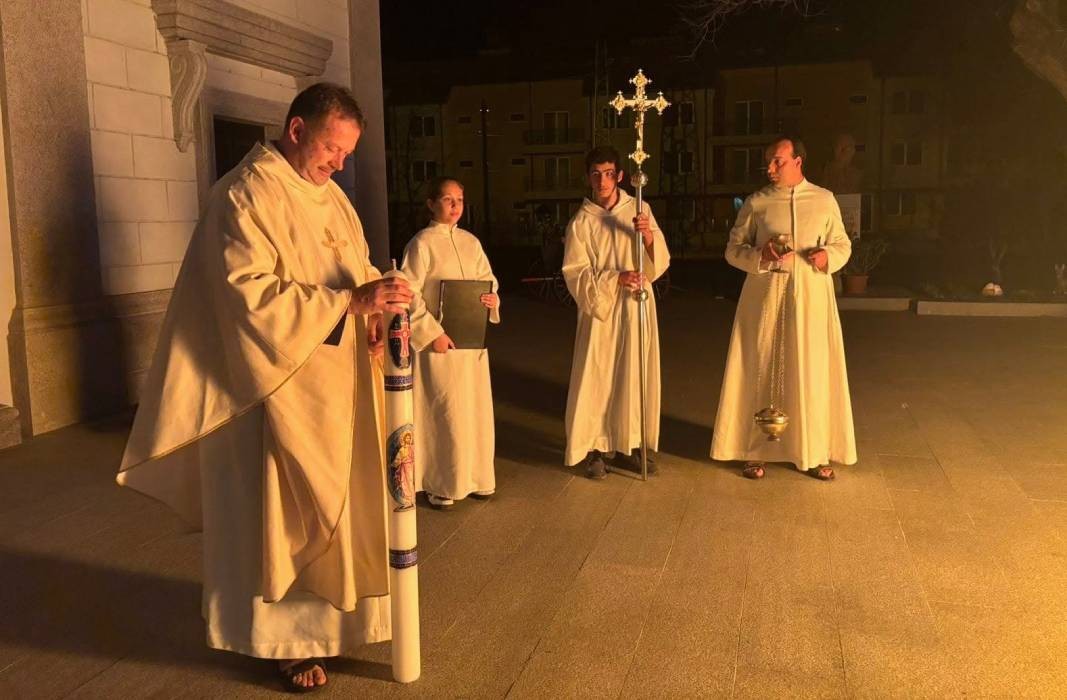
The Catholic community in Bulgaria numbers about 60,000 people, but despite its relatively small size, it has a rich history, says Father Paolo Cortesi in an interview with Radio Bulgaria. "In the 16th century, Franciscan monks from Bosnia arrived in the region of the towns of Belene and Rakovski, where they carried out missionary work. Several centuries later, during the Ottoman rule, the descendants of Orthodox Christians in southern Bulgaria and around Edirne also embraced Catholicism. However, since they continued to observe Orthodox rituals, they were called Uniates or Eastern Rite Catholics. Catholic bishops participated in the cultural development of the country."
"I often remember another difficult time - the period of the communist regime in Bulgaria, which became a great trial for the Catholic Church, a real suffering and a Golgotha, says Paolo Cortesi. Of the 50 priests, about ten were killed. Many priests were also sent to concentration camps and prisons. So let us thank God for the political changes of the 1990s and the new freedom. In the last 40 years many foreigners have come here and we can say that a new spring has come for Catholics in Bulgaria."
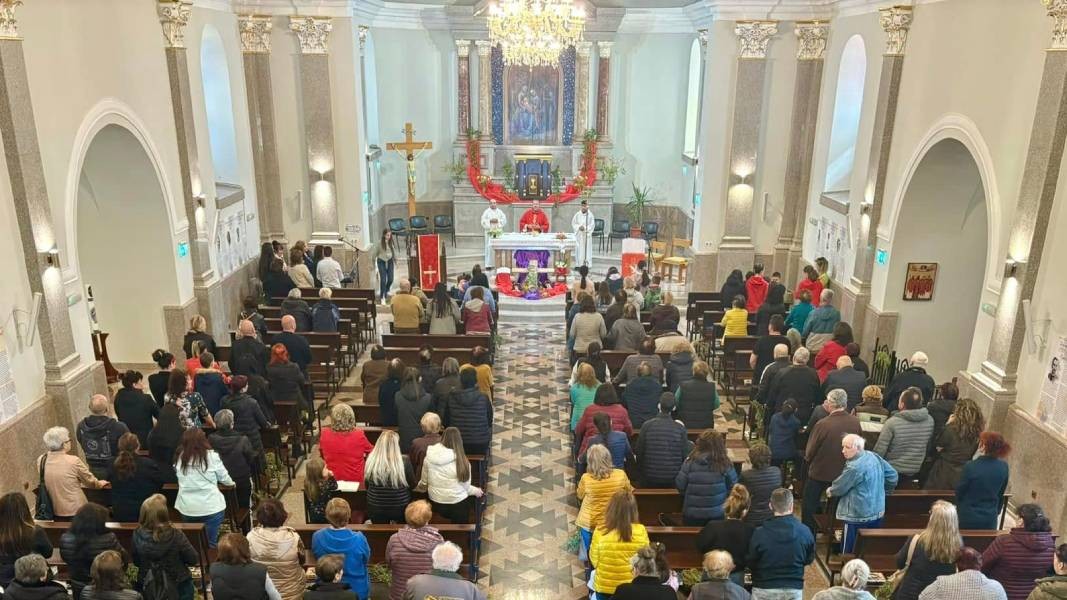
And with that came uplifting news - after weeks of concern as Catholics prayed for the health of Pope Francis, he left the hospital and appeared among the faithful in St Peter's Square".
"We are happy that he is already recovering," says Paolo Cortesi. "We also hope that he will come out on Easter and bless the whole world. Bulgarian Catholics are still joyful about the Pope's visit in 2019, because, aside from being our shepherd, he is also an extraordinary person — he has something to say to all of us, much like his predecessors Pope Benedict and Pope John Paul II, who were exceptional figures with messages for the whole world."
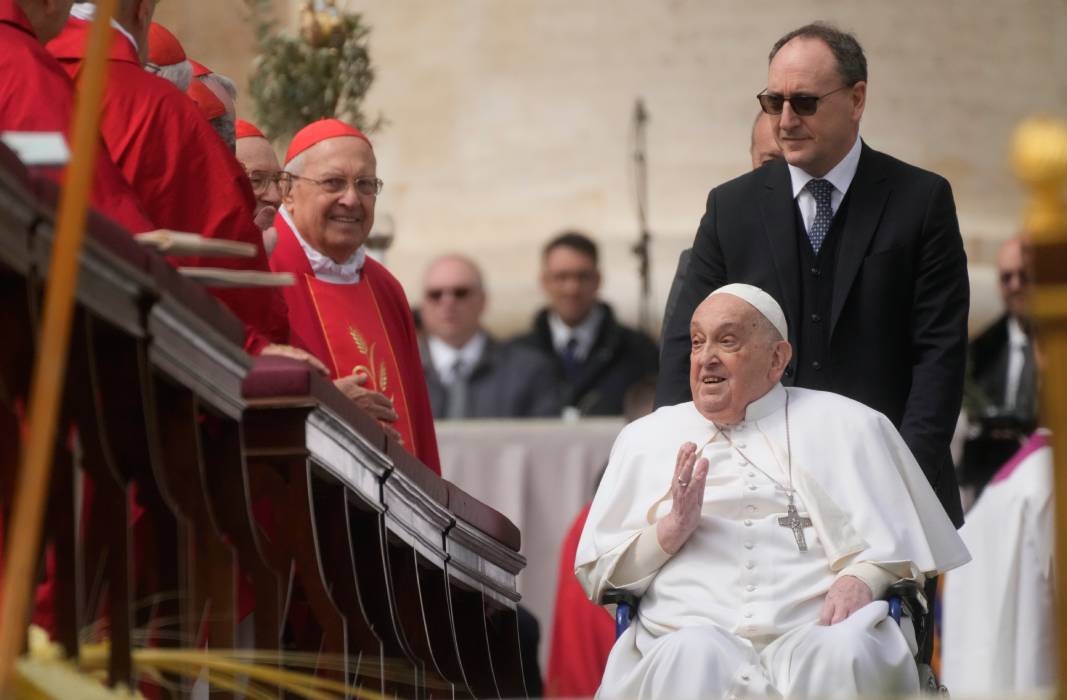
Among these exceptional religious leaders with a mission that goes beyond purely ecclesiastical matters is the "Bulgarian Pope", John XXIII. He arrived in Bulgaria in 1925 under his birth name Angelo Giuseppe Roncalli, and during his ten-year stay as Apostolic Visitor he not only left his mark on religious life, but also won the hearts of the people with his compassion for the suffering and his diplomatic efforts on behalf of our country after the First World War.
"He worked to rebuild the structures of the Catholic Church, especially for Eastern Rite Catholics, and together with Monsignor Francesco Galloni he founded the Opera Italiana Pro Oriente Institute, creating a new spirit in the community," says Paolo Cortesi.
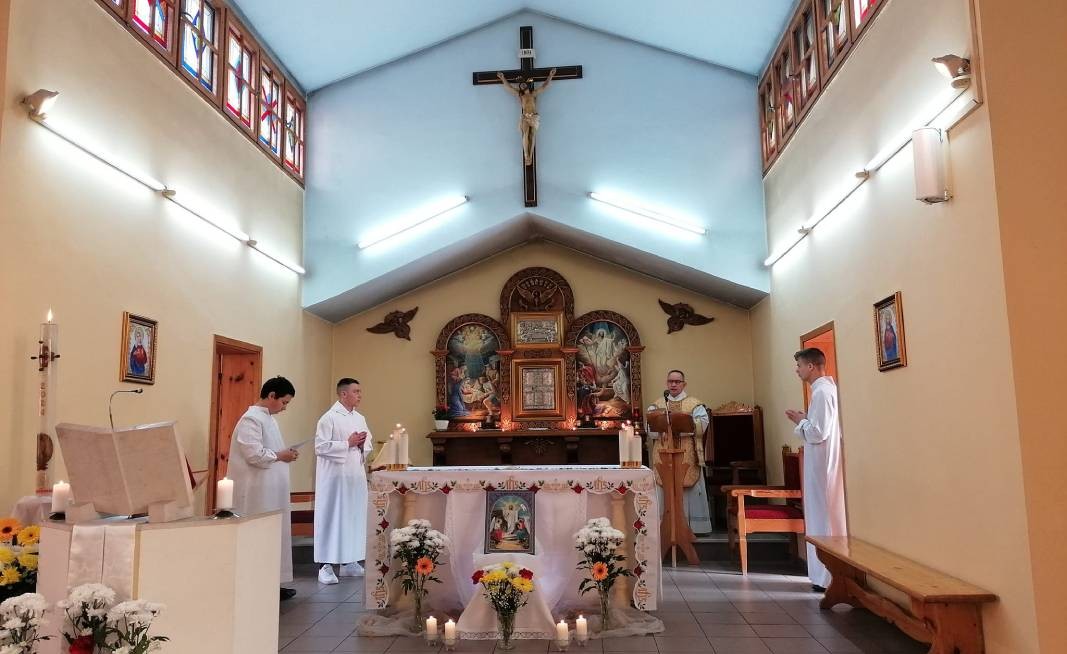
"He also worked on various charitable projects, such as helping tens of thousands of Bulgarian refugees from northern Greece and the Edirne region to find shelter, food and work. After the Chirpan earthquake, he helped victims and survivors, and contributed to the restoration of churches and schools. He made diplomatic efforts to renew relations between the Kingdom of Bulgaria and the Vatican, and in 1932 he established the Apostolic Delegation in Bulgaria - today's Apostolic Nunciature."
"He worked with King Boris, as well as for the relations with the Orthodox, Armenian, and Protestant churches. Always open to dialogue and with a smile, he cherished good human relationships with everyone. Ten years later he left for Istanbul, where he continued his work for "Christian unity"."
It was in Bulgaria that the future Pope John XXIII took a step towards closer relations between Catholics and Orthodox.
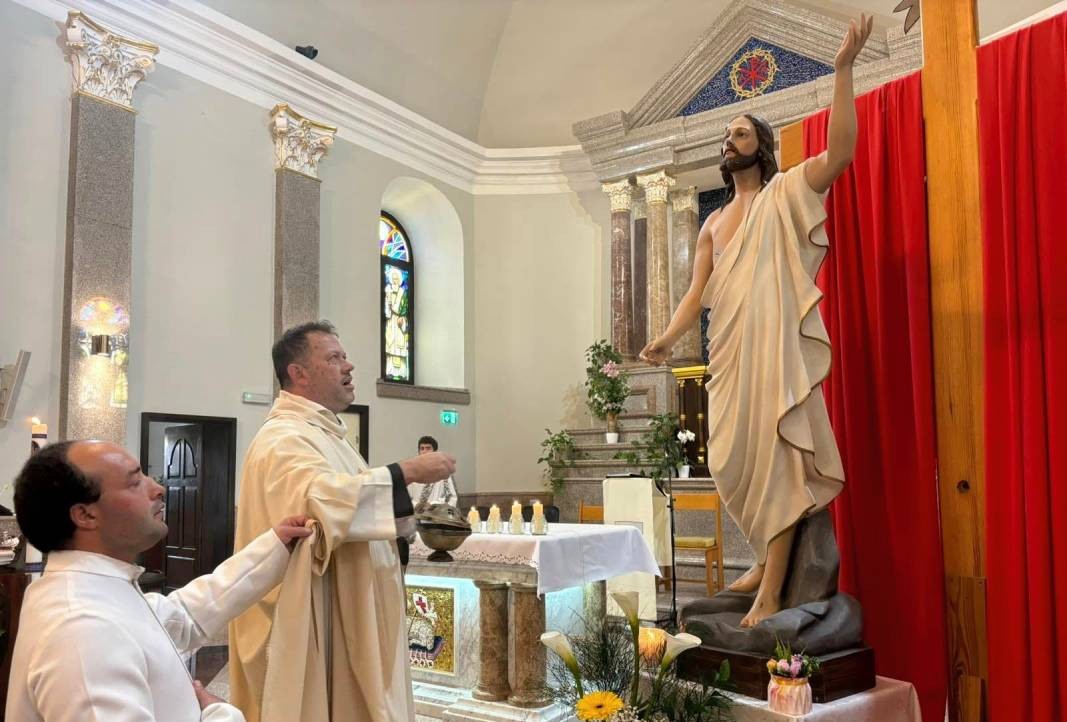
"Unfortunately, the Christian churches have been divided for centuries on certain issues, but today, in each of them, more and more people are working again to find complete unity," says Paolo Cortesi. "This year we have the opportunity to do so, as it is the 1700th anniversary of the Council of Nicaea, when all the churches were united. I hope that Pope Francis and the Ecumenical Patriarch will work with much effort, and that one day we will once again celebrate the resurrection of Christ together. There is much division and misunderstanding in our world, but let our faith at least lead us to understanding, to sharing and to communion."
A small step towards answering this call is the commemoration of the work of Angelo Roncalli. On 25 April this year, a hundred years after his arrival in Bulgaria, the Catholic Bishops' Conference, together with the Apostolic Nunciature, is organising a jubilee scientific conference at the Bulgarian Academy of Sciences under the title "Obedience and Peace - Monsignor Roncalli and his Apostolic Mission in Bulgaria (1925-1934)".
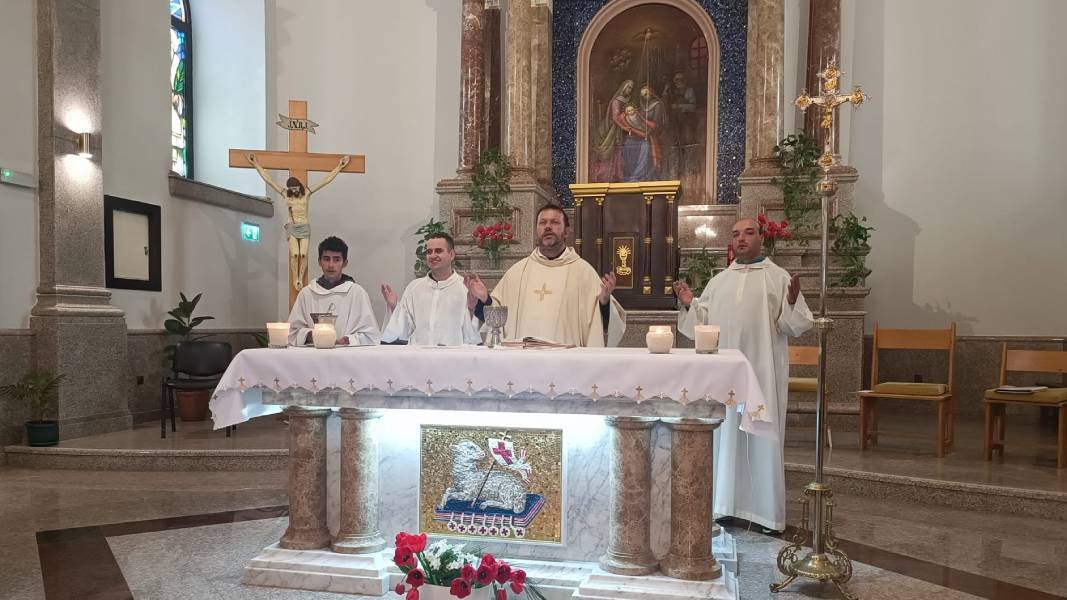
At the conference, Father Paolo Cortesi will present his latest work, "You Attend Yo The Earth and Water It", which contains some 600 pages of letters from Monsignor Angelo Roncalli to the Vatican, in which he talks about Bulgaria - and not just about Catholics. But first, on the eve of Christ's resurrection, he will send his message to all people of good will in the world.
"My Easter message, like every year, is for all people," says the Catholic priest. "I hope that the resurrection of Jesus Christ will bring new hope to everyone, especially to those who are suffering - that we will grit our teeth, not give up and have the Christian hope that in the end God will conquer death, light will conquer darkness, good will conquer evil, joy will conquer sorrow and love will conquer hate. You see, the victory belongs to God and to good, and the true victor is Christ, who rose to awaken hope in our hearts, in our lives. Let us not give up!"
For the first time in 500 years, the chants of the Divine Liturgy echoed through the ruins of the medieval monastery ''St. John the Baptist'' on St. John Island near Sozopol. The occasion was the commemoration of the Beheading of St. John the Baptist,..
The church board of the Bulgarian Orthodox Church “Holy Trinity” in Madison, Illinois (USA), has announced on its Facebook page that it needs a priest to serve in the church. “We humbly ask all brothers and sisters in Christ – in the wider..
An archaeological expedition led by Assoc. Prof. Dr. Boni Petrunova – Director of the National Museum of History, discovered a massive bronze statuette of a goddess from the Greco-Roman pantheon. The artifact was found in residential premises in the..

+359 2 9336 661
